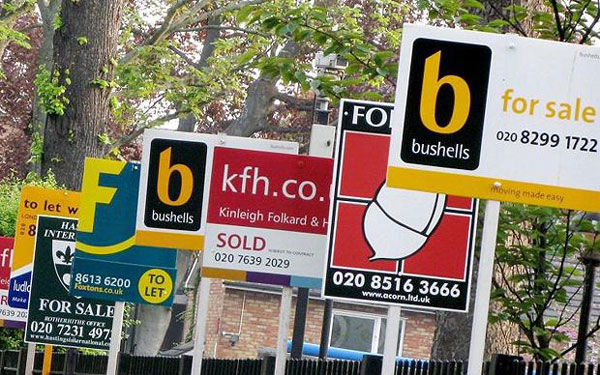First-time Buyer
House price growth hits six-year low

UK annual house price growth slowed in February, hitting its lowest level since September 2012, driven by a slowdown in the South and East of England, data showed.
Average house prices increased by 0.6% in the year to February, down from 1.7% in January, according to the latest figures released by the Office for National Statistics.
The lowest annual growth was in London, where prices fell by 3.8%, down from a decrease of 2.2% in January. This was followed by the South East where prices fell 1.8% over the year.
The average UK house price stood at £226,000 in February, £1,000 higher than the same period a year ago.
Regional overview
The report showed that the average house price in England increased by 0.4%, down from 1.4% in January.
House prices in Scotland fell by 0.2% annually, down from a rise of 2.4% in the year to January, with the average house price in Scotland now £146,000.
House price growth was strongest in Wales, increasing by 4.1%, with the average house price at £160,000. Northern Ireland house prices increased by 5.5% over the year to the fourth quarter 2018.
Northern Ireland remains the cheapest UK country to purchase a property in, with the average house price at £137,000.
The North West showed the highest annual growth, with prices increasing by 4.0% in the year to February, this was followed by the West Midlands.
While London house prices are falling over the year, the area remains the most expensive place to purchase a property at an average of £460,000, followed by the South East and the East of England, at £316,000 and £290,000 respectively.
The North East continues to have the lowest average house price at £125,000 and is the only English region yet to surpass its pre-economic downturn peak.
Mortgage market remains resilient
Kevin Roberts, director of Legal and General Mortgage Club, said that while house price growth is often closely affected by wider market conditions, the mortgage market remains resilient and is working hard to keep up with consumer demand.
He said: “Lenders continue to offer increasingly competitive fixed-rate mortgages and we are also seeing a rise in the number of high loan-to-value products, helping both those looking to move onto and up the property ladder.
“To take advantage of some of these great deals and options, speaking with an independent mortgage adviser can be a beneficial first step for borrowers.
“Advisers have access to nearly six times the number of mortgages than those available direct from the high street. Perhaps more important though, is that advisers really can use their expertise to find products that are the best fit their client’s specific needs.”
Jonathan Samuels, CEO of Octane Capital, said that while prospective sellers in London will be disheartened by the continued house price slide, buyers and investors are increasingly on the front foot.
He said: “Owner occupiers in the capital are cautious at present, but professional investors are highly active given the discounts available.
“Professional investors in the capital have a spring in their step that we haven’t seen for some time.
“While the market as a whole is idling along, as ever prices are being propped up by low supply.
“There is unlikely to be a turnaround in the property market’s fortunes until we have more clarity on Brexit. Sadly, clarity on Brexit doesn’t appear to be coming any time soon.”